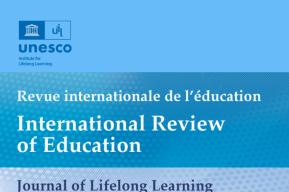News
Best practices for governance and new organizational roles for the successful implementation of responsible Artificial Intelligence

The first webinar organized by UNESCO's Ibero-American Business Council on Artificial Intelligence and Ethics, was held April 25, 2023. This cycle of open webinars aims to share among various actors linked to AI - designers, programmers, academics, analysts – good practices and experiences around the implementation of the UNESCO Recommendation on the Ethics of Artificial Intelligence. Who benefits from the implementation of AI? How can we actively link them with socioeconomic opportunities for the population of Latin America?
The responsible and ethical use of artificial intelligence is a central issue on the sustainable development agenda, as demonstrated by global initiatives such as the UNESCO Artificial Intelligence recommendation.
The Business Council, chaired by Telefónica and Microsoft, stands as the voice of companies in the digital and telecommunications sectors, but also in digitized sectors such as banking, insurance and commerce that proactively want to build an ethical, responsible and sustainable Artificial Intelligence.
This first webinar focused on best practices for governance and new organizational roles that might be required for the successful implementation of a responsible and sustainable Artificial Intelligence.

David Marcos, Director of Governance and Enablement at Microsoft's Office of Responsible AI, highlighted that Responsible AI requires an inclusive approach that brings together various stakeholders (policy, technology, research, sociology, etc.) to effectively address the AI challenges. He also emphasized the need for awareness, training, and a principled approach that enables an organization to structure and develop responsible AI.
For his part, Richard Benjamins, Chief AI & Data Strategist at Telefonica opened his speech warning that there is no guarantee that the use of AI is always ethical, therefore a methodological approach is required for the responsible use of AI that increases the probability of a positive impact and minimize the probability of a negative impact. For that goal, Benjamins presented a methodology that organizations can follow to implement the ethical use of AI with a series of steps: choice of principles; executive level involvement; questionnaire design, training, governance model and implementation of pilots. (Information will be available here).
César Buenadicha head of the IDB Lab Discovery Unit, highlighted that in addition to compliance with regulations, one of the most relevant elements to promote an ethical AI in the products, services and operations of the private sector, particularly in technological entrepreneurship ecosystems, is to clearly show its business value. This can be achieved first by identifying the main areas of opportunity to improve their technology through self-diagnostic tools for entrepreneurs such as the one developed by fAIr LAC.
Additionally, it is necessary to build the support infrastructure for entrepreneurs so that they effectively incorporate all the recommendations received and thus have a real impact on the ecosystem a través de las herramientas de autodiagnóstico para emprendedores como la desarrollada por fAIr LAC.
In the Q&A segment, Angel Melguizo, UNESCO Advisor for Artificial Intelligence and Ethics, highlighted that the objective of the Business Council is precisely coordination, joining forces and sharing good practices, as was mentioned by all the panelists.
In addition, topics ranging from the most current issues such as the call for a pause in GPT models or the perception of the demand of investors and users for a more ethical and responsible technology (similar to the green agenda), to practical advice on how to design a fair algorithm were debated. Regarding the pause, all the panelists advocated not stopping AI developments that can be so relevant to respond to growing social demands, but accelerating the implementation of ex ante principles. See the UNESCO declaration on the matter.
Eleonora Lamm, UNESCO social and human sciences specialist, closed the event highlighting the importance of having the UNESCO Recommendation on the Ethics of AI as a beacon that guides these debates and the processes that the institution is currently accompanying with various countries of the region. region, including Colombia, Brazil, Mexico, Ecuador, El Salvador, Argentina, Uruguay, Peru, Costa Rica, Dominican Republic and Cuba. Many of these results can be seen at the summit of high AI authorities that will take place in Santiago de Chile on October 23 and 24 of this year.
The next webinar will take place on May 30, and will focus on how to design Artificial Intelligence systems that fight and do not promote bias, with a focus on gender bias. Registration details will be published soon on UNESCO platforms.










